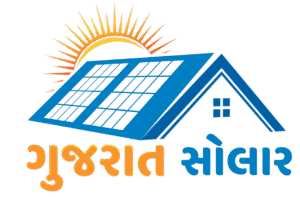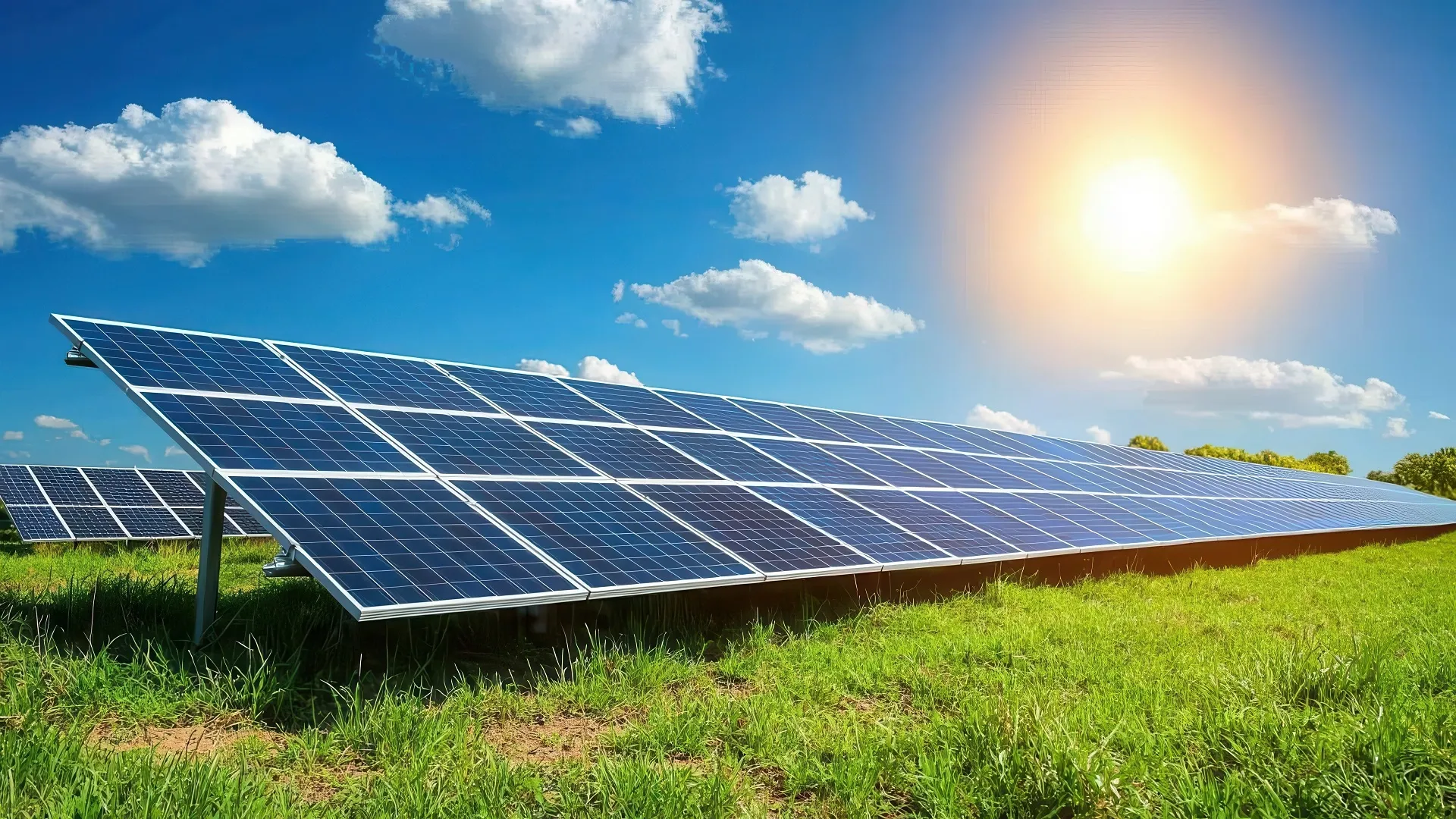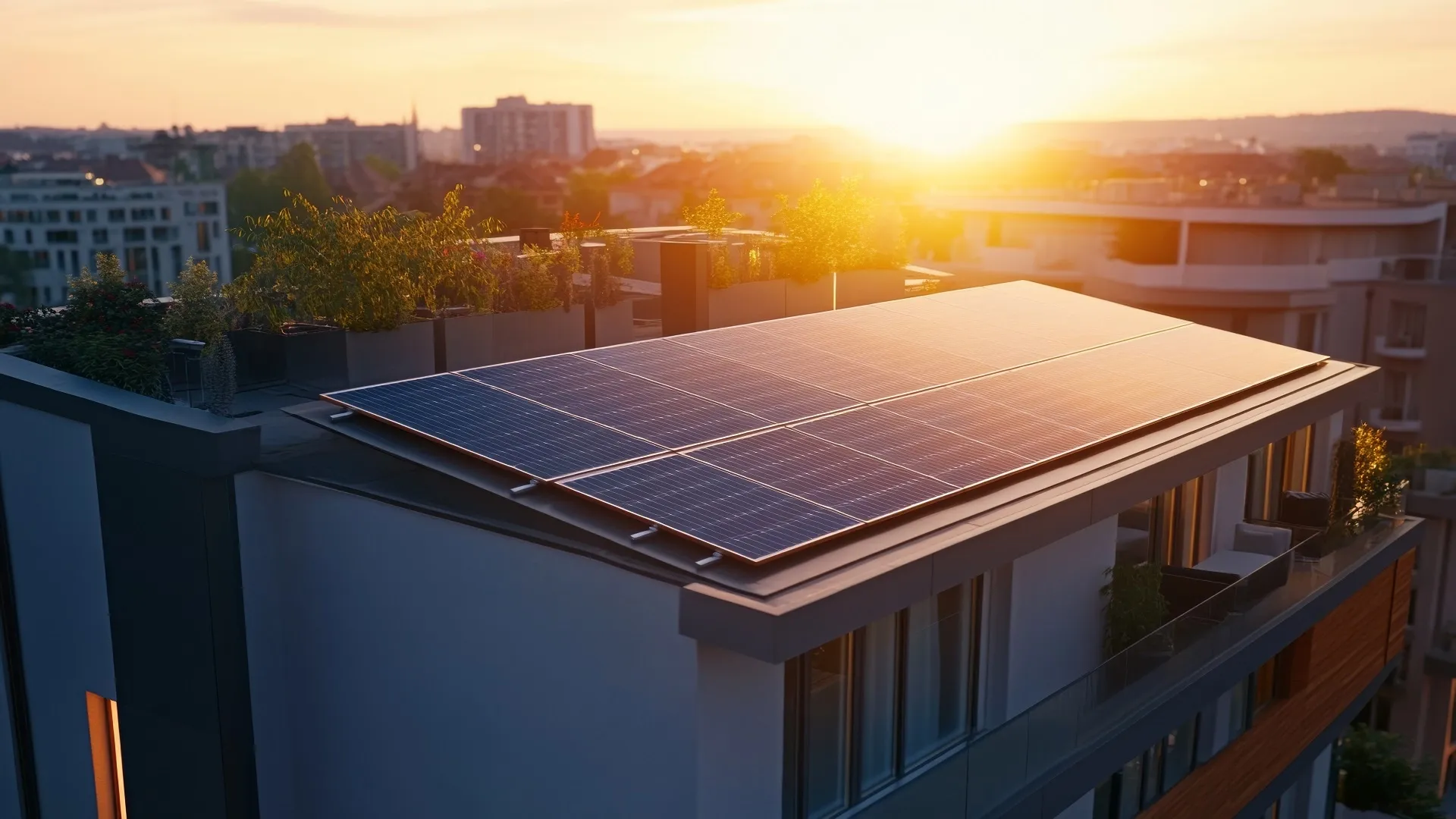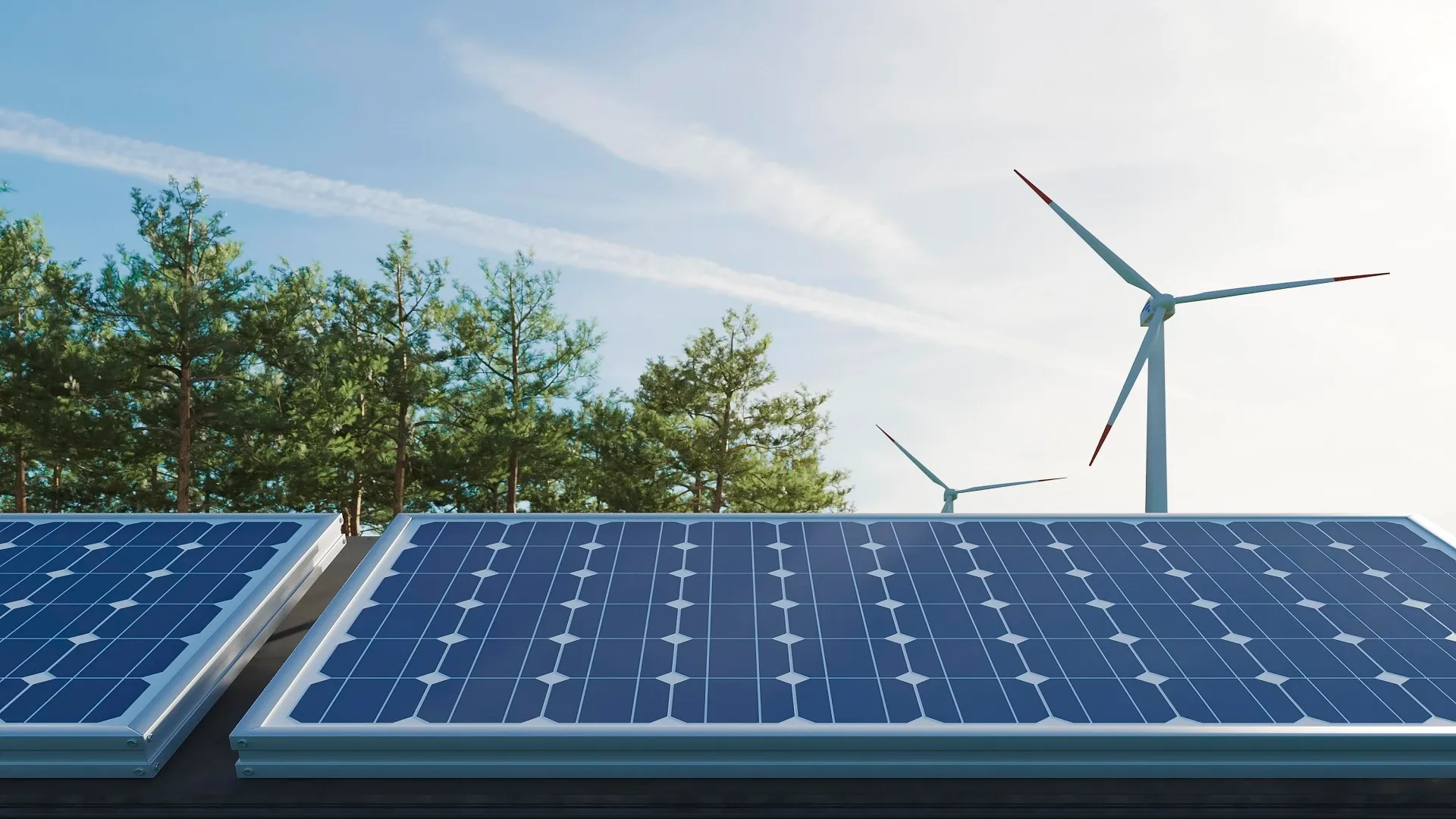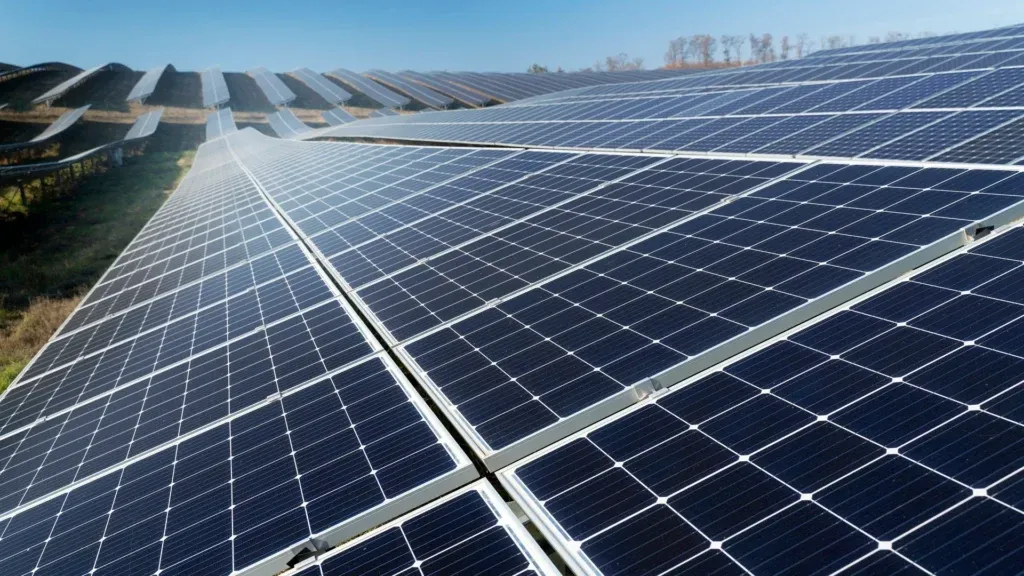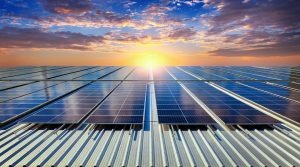


Gujarat's #1 Home Solar Company |
Schedule a
FREE consultation
with us today!
Why choose Gujarat Solar Energy for your solar installation

Easy Financing Plans
Switching to solar made easy & affordable with our EMI plans

Cyclone-Proof Solar Systems
Safe, durable installations built to withstand storms and winds up to 170 kmph.

End-to-End Support
We handle everything from site visit to installation, subsidy, and support—so you stay stress-free.

Enjoy 5 Years of Worry-Free Maintenance
Includes Quarterly Maintenance: Cleaning, Inspections & Repairs
Latest from the Blog
Gujarat Solar Energy’s Complete Guide to Going Solar for Housing Societies
Learn Everything You Need to Know Before Installing a Rooftop Solar System in Your Society
🔸 Discover how much your society can save with solar
🔸 Find the right system size based on your electricity needs
🔸 Understand which solar technology is best for housing societies
🔸 Bust the most common myths about rooftop solar
Get Your Free Solar Guide

Gujarat Solar Energy We Serve All 33 Districts
We offer solar energy solutions across every district of Gujarat. Our mission is to make clean, green energy accessible to every corner of the state.
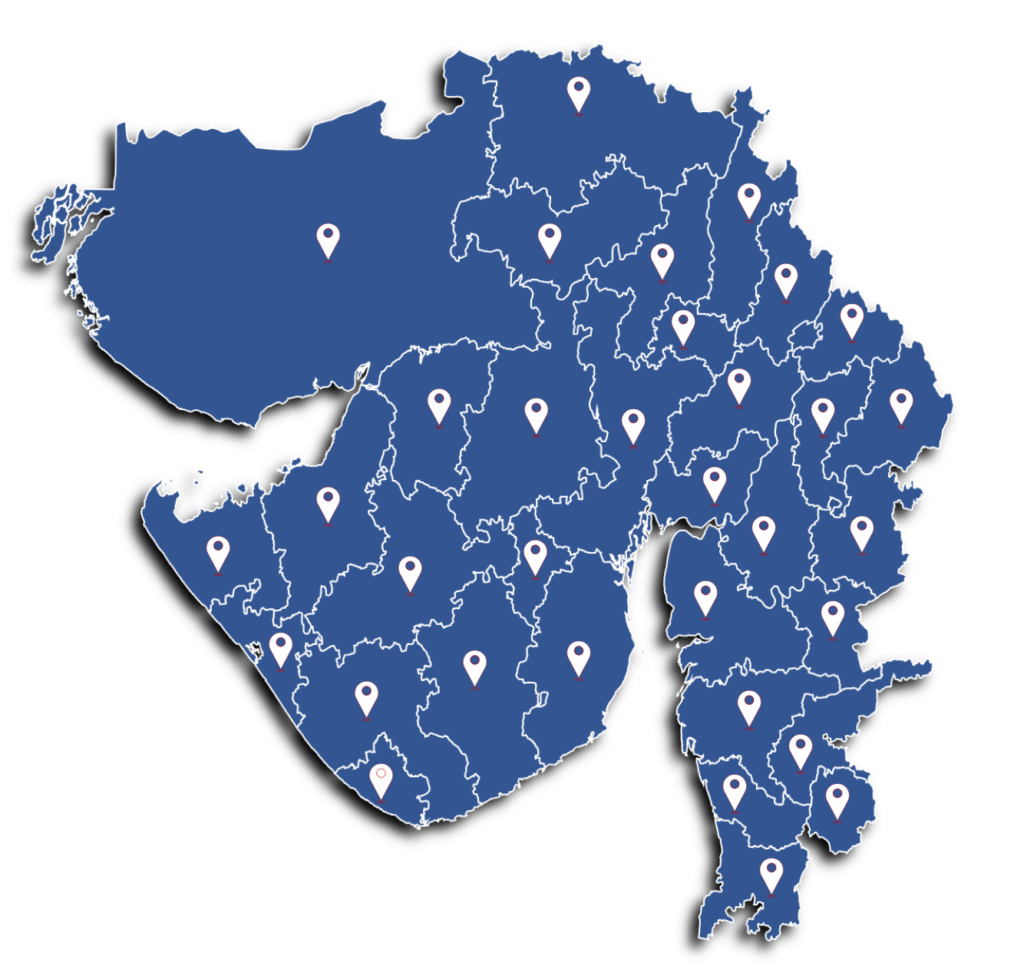
Powering Every District of Gujarat with Clean Solar Energy
We proudly serve all 33 districts of Gujarat, bringing reliable and affordable solar energy solutions to Ahmedabad, Amreli, Anand, Aravalli, Banaskantha, Bharuch, Bhavnagar, Botad, Chhota Udaipur, Dahod, Dang, Devbhoomi Dwarka, Gandhinagar, Gir Somnath, Jamnagar, Junagadh, Kheda, Kutch, Mahisagar, Mehsana, Morbi, Narmada, Navsari, Panchmahal, Patan, Porbandar, Rajkot, Sabarkantha, Surat, Surendranagar, Tapi, Vadodara, and Valsad. Our mission is to make solar energy accessible to every corner of Gujarat, helping households and businesses switch to sustainable, cost-saving power solutions.
Who are we?
Gujarat Solar Energy is a trusted and forward-thinking solar energy company based in Gujarat, dedicated to transforming homes, shops, communities, and industries with clean and cost-effective solar power. We offer a complete range of services including rooftop solar panel systems, government subsidy assistance, professional installation and maintenance, and a solar savings calculator. Our team understands the unique energy needs of Gujarat and guides customers through schemes like the PM Surya Ghar Yojana with ease. At Gujarat Solar Energy, our mission is to bring solar power to every home and help build a greener, energy-independent Gujarat.




Client Satisfaction
Your Questions, Answered
Gujarat Solar Energy designs and installs solar panel systems for homes, housing societies, and businesses across Gujarat. We offer complete end-to-end solutions — from system design and subsidy assistance to installation and long-term maintenance.
A solar rooftop system is a combination of components that convert sunlight into usable electricity.
It is installed on the roof of homes, societies, or buildings and helps reduce electricity bills by using clean, renewable energy.
Main components of a rooftop solar system:
Solar Panels with PV (photovoltaic) cells
Solar Inverter (converts DC to AC)
Mounting Structures (to fix panels on the roof)
AC & DC Cables
AC Combiner Box
DC Combiner Box
Earthing Cables (for safety)
MC4 Connectors (to connect panels and cables)
Price estimates are calculated by PropTrack Australia by looking at multiple properties and local market data points, which together can provide insight into the approximate value of a property. The data that informs the estimate range includes property and local market data including: Property types, Recent sales & local price trends, and Land area. To learn more about privacy and Property Value pages.
You can apply for the government’s solar rooftop subsidy through your solar installer or authorized vendors. The process involves submitting necessary documents like identity proof, electricity bill, and ownership proof to your DISCOM (power distribution company). Your installer usually helps with the paperwork and registration on the government portal. Once approved, the subsidy amount is credited to your account or deducted from your final bill, making solar affordable.
The price varies based on system size and quality. On average, the cost is ₹60,000 per kW in urban areas and ₹62,000 per kW in rural areas (before subsidy). For example, a 3 kW system might cost approximately ₹1.8 lakh in urban areas and ₹1.86 lakh in rural areas, before applying any government subsidy.
Solar energy reduces your electricity bills, lowers your carbon footprint, and increases energy independence. It’s a clean, renewable source that helps combat climate change. Plus, with government subsidies and easy financing options, solar is more affordable than ever.
Yes. Solar rooftop systems are designed with strict safety standards, including proper earthing, quality components, and certified installation. Regular maintenance ensures your system operates safely and efficiently for decades.
You need a suitable roof area with good sunlight exposure, solar panels, an inverter, mounting structures, wiring, a bidirectional meter (for net metering), and approval from your DISCOM.
Grid-tied systems: Connected to the electricity grid, allowing excess power to be exported.
Off-grid systems: Use batteries to store power, ideal for areas without grid access.
Hybrid systems: Combine grid-tied and battery backup, providing power even during outages.
Yes, solar panels work during cloudy, rainy, and winter days but with reduced efficiency compared to sunny days. They still produce significant electricity as they need sunlight, not heat, to operate.
A 1 kW solar plant can produce about 4-5 units (kWh) of electricity per day on average, depending on location, season, and shading. For example, a 3 kW system may generate around 12-15 units daily.
You can run almost all household appliances such as lights, fans, TVs, refrigerators, and even air conditioners on solar power, depending on your system size. It’s ideal to optimize appliance use based on your system’s capacity.
Calculate your average monthly electricity consumption from your bills. A solar installer can help determine the right system size based on your energy needs, roof space, and budget.
Net metering is a billing mechanism that credits you for the excess electricity your solar system exports to the grid. It allows you to reduce your electricity bills by offsetting the power you consume from the grid with the power you produce.
The typical life of a rooftop solar system is 25 to 30 years. Solar panels usually come with a warranty of 25 years, and inverters typically last 10–15 years, after which they may need replacement. With proper maintenance, your system can work efficiently for decades. This applies to installations in Gujarat.
No. Solar rooftop systems generally require low maintenance. Regular cleaning and occasional inspection are enough to keep the system running efficiently. Gujarat’s dry climate helps reduce maintenance needs compared to more humid regions.
When installed by professionals following proper guidelines, solar projects do not damage your roof. The mounting structures are designed to be safe and secure. In Gujarat, installers use suitable techniques based on roof type to prevent leaks or damage.
Yes, cleaning solar panels periodically is recommended to remove dust and dirt that can reduce efficiency. In Gujarat, where dust can accumulate quickly, cleaning every 6 months or after heavy dust storms is ideal.
A combination of unique data, industry expertise and analytical precision has made PropTrack a trusted leader in property data and automated valuations. From November 2018, PropTrack has been providing REA with most of the property insights used in consumer and customer experiences. More information about PropTrack is available on their website.
The cost of a solar plant in Gujarat typically ranges from ₹60,000 per kW in urban areas to ₹62,000 per kW in rural areas, before applying any subsidies. The total cost depends on the system size, quality of components, and installation charges.
In Gujarat, the break-even period is usually 4 to 6 years, depending on your electricity consumption and system size. After this period, the savings on electricity bills effectively cover your initial investment.
Yes. The Gujarat government offers subsidies under various schemes to promote rooftop solar adoption. These subsidies help reduce the upfront cost and make solar more affordable for residential and commercial users.
Note: The Gujarat solar subsidy schemes are applicable only within Gujarat. For Madhya Pradesh, you will need to check their specific government portals and local DISCOMs for subsidy application procedures.
CapEx (Capital Expenditure) model: You buy and own the solar system by paying upfront costs.
OpEx (Operational Expenditure) model: You pay monthly or yearly fees to use the system without owning it (like solar leasing).
Both models are available in Gujarat depending on your financial preference.
Yes. In Gujarat, many banks and NBFCs offer loans and easy financing options for solar rooftop projects, making it affordable to install solar without heavy upfront costs.

Switching to Solar Made Easy
Thinking about solar but not sure where to start? Don’t worry—we’ll guide you through the simple steps to make the switch hassle-free.
Overview of Rooftop Solar Panels in India
India is a tropical country that receives sunlight for almost 300 days a year, making it an ideal place for generating solar power. The electricity that DISCOM charges you up to ₹8 per unit can be produced for free using solar panels on your rooftop — because sunlight costs nothing!
At Gujarat Solar Energy, we offer residential rooftop solar systems ranging from 2KW to 10KW and more, suitable for both individual homes and housing societies.
With hands-on experience of installing over 90 MW of rooftop solar panels, we strongly believe that every rooftop — whether it's a concrete RCC roof or a metal sheet — has the potential to harness solar energy.
For example, if your monthly electricity usage is around 500 units, a 4KW rooftop solar system can help you save up to ₹44,000 every year (assuming ₹8/unit electricity rate).
Solar Installation Requirements
1. Mandatory Rooftop Inspection by Experts
If your rooftop has shade from trees or nearby buildings between 9 AM to 4 PM, your solar panels will not generate as much electricity as they should.
At Gujarat Solar Energy, our expert consultants inspect your roof to identify:
– The best spot that receives the most sunlight,
– The right height for mounting structures to avoid shadows,
– The ideal type of solar panel based on your roof type.
They also ensure your rooftop is strong and spacious enough to safely support solar structures through chemical anchoring.
2. Determining the Right Tilt Angle
India receives maximum sunlight from the southern direction, but not all rooftops face south. That’s why choosing the right tilt angle is crucial:
- South India: Ideal tilt angle is around 10°
- North India: Ideal tilt angle is 20° or more
Correct panel alignment ensures maximum energy output from your system.
How a Rooftop Solar System Works
When sunlight hits the PV cells in your rooftop solar panels, it generates DC power. This power is converted into AC power using a solar inverter to run your home appliances.
If your solar system generates more electricity than your home consumes, the extra power is sent back to the grid via a bidirectional meter. Thanks to net metering, DISCOM will credit you for the excess electricity, effectively reducing or even eliminating your power bills.
Solar Panel for Home Price in India
Wondering how much a rooftop solar system costs?
Prices vary due to:
– Type and efficiency of the solar panels
– Quality of installation services
– Value-added services like monitoring apps, maintenance, etc.
| System Size | Estimated Price (₹) |
|---|---|
| 1 KW | ₹60,000 – ₹62,000 |
| 2 KW | ₹1,20,000 – ₹1,24,000 |
| 3 KW | ₹1,80,000 – ₹1,86,000 |
| 4 KW | ₹2,40,000 – ₹2,48,000 |
| 5 KW | ₹3,00,000 – ₹3,10,000 |
| 10 KW | ₹6,00,000 – ₹6,20,000 |
Top 10 Benefits of Using Solar Energy at Home
- No more high electricity bills – save up to ₹8/unit.
- Earn credits for extra power generated through net metering.
- Reduce your carbon footprint and fight climate change.
- Be energy independent – rely less on the grid.
- Recover your investment in just 4–5 years.
- Government subsidies available to lower your upfront cost.
Subsidy Details:
Up to 1 KW: ₹30,000
Up to 2 KW: ₹60,000
Above 3 KW and up to 10 KW: ₹78,000
Additional Subsidy in Uttar Pradesh: ₹15,000 per kW (max ₹30,000)
Total maximum subsidy: ₹1,08,000
For Housing Societies: ₹18,000 per KW, up to ₹90 lakhs.
- Long lifespan – solar panels last up to 25 years or more.
- Low maintenance – simple cleaning and yearly check-ups keep them efficient.
